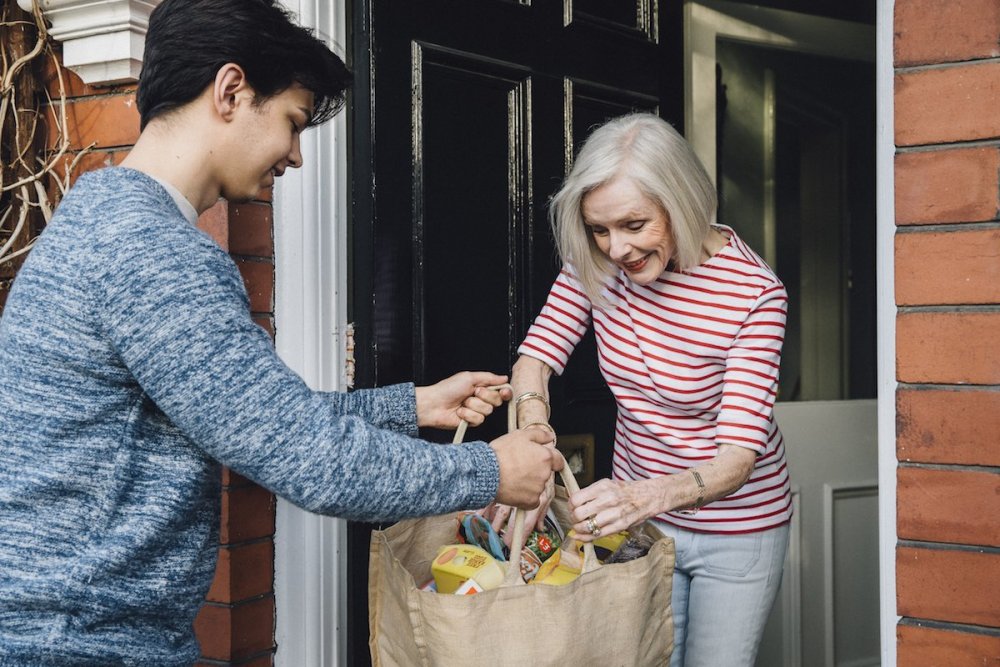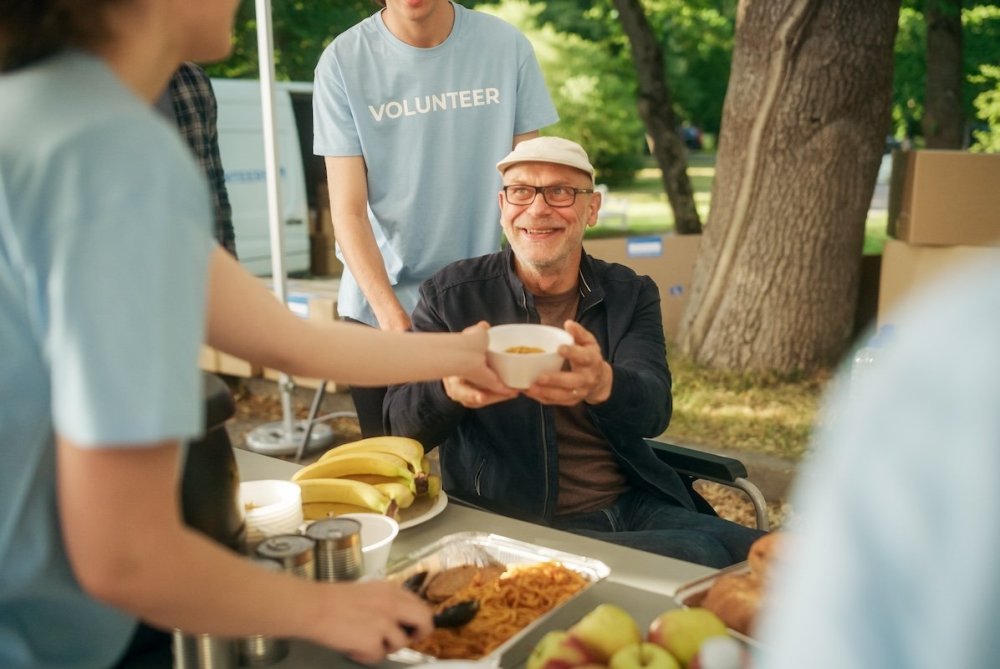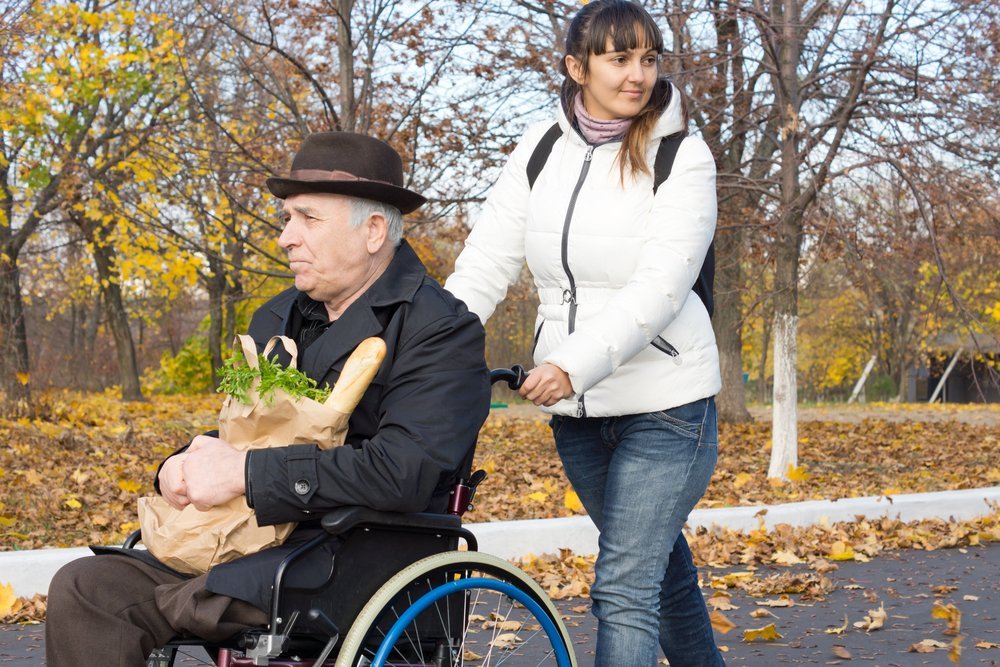Science says that showing kindness to others can boost our physical health and psychological well-being. Sonia Vadlamani offers nine suggestions on how to be a nicer person by incorporating more compassion, politeness and kindness into our daily lives.
The idea of purposefully learning how to be nicer may make some of us cringe, as sometimes we may confuse ‘being nice’ with pretending to be polite or feigning interest for the sake of seeming acceptable. This ‘induced niceness’ may, in fact, get quite burdensome very quickly, as it requires additional effort on one’s behalf to seem something they’re not feeling genuinely.
However, in reality, nicer people are easier to be around, as they’re genuinely interested in what you think and do. Being nice translates into treating others as you may want to be treated, being empathic, anticipating and respecting others’ needs and feelings, and being kind.
While it may be difficult to exactly define ‘niceness’, psychologists rely on the personality traits that we associate with it, like kindness, politeness, empathy, and thoughtfulness, etc. Researchers also point out that the major personality traits associated with ‘agreeableness’ such as kindness, compassion and politeness are also the aspects that we often consider as ‘being nice’.
The benefits of being nice
Being a nicer person entails prosocial behaviors such as extending kindness, sharing our happiness, respecting others’ vantage point on different issues, etc, which promote well-being and boost social connections. However, research suggests that being nice to others can benefit our mental health and boost longevity as well.
In fact, showing kindness to others results in the release of happiness hormones such as oxytocin, which can improve heart health, regulate blood pressure, and foster a greater sense of inclusion, according to researcher James Doty, M.D. at Stanford University.

How to be nicer: show kindness through helping those in need
Being nice by way of kindness may also alleviate stress and offer faster relief from pain, as research indicates. Furthermore, niceness can also lower anxiety and boost relationship satisfaction for socially anxious individuals.
How to be nicer: 9 ideas for kindness
Indeed, being nice may not always be the easier choice. However, with mindfulness and dedicated practice, it’s possible to learn how to be a friendlier person and show more kindness to others. Here are nine simple ideas that can help us incorporate kindness into our daily life, helping us to become a nicer person.
1. Have more patience
A study by researcher Sarah A. Schnitker suggests that patient people are better friends and neighbours, as they tend to be more impartial, more attentive and have a higher tolerance. Developing mindfulness, or the ability to stay in sync with what is happening in the present moment, can also enable you to reframe a situation, reevaluate your emotions and respond with improved patience, according to research. Practising mindful listening and cultivating patience is therefore one of the surest ways to be a kinder person.
2. Be less judgmental
Learning how to be a nicer person may not be the easiest feat, but experts agree that casting judgements aside and learning to transcend our perceived differences through bridging can help us respect other people’s perspectives and acknowledge their viewpoints in a better light.
“Research suggests that being nice to others can benefit our mental health and boost longevity. Showing kindness to others releases feel-good hormones.”
Engaging in deep listening and positive communication, taking care to avoid social media outrage trap, and a regular meditation practice are some of the research-backed ways to cultivate deep empathy and avoid snap judgments.
3. Look for ways to be helpful
Reaching out and anticipating someone’s needs is an effective way to work towards being a nicer person. This can involve small gestures that do not cost a lot but can brighten someone’s day, like offering somebody your seat, or helping someone carry their groceries. Offering support or solicited advice to someone who may be feeling lost in life, dealing with depression, or struggling with grief or loneliness are some other ways to help out and show your friendly side.

Volunteering is a great way to be kind to others
4. Open up and show vulnerability
Our third tip on how to be nicer relates to vulnerability. Sometimes we shun the opportunity to open up and share our feelings with others, owing to the fear of being judged or compared. Researcher Dr Brené Brown describes this feeling as a vulnerability hangover, wherein one may experience regret or ‘emotional cringe’ upon revealing their feelings or thoughts to others.
While vulnerability is mistakenly regarded as a weakness, embracing it as an act of courage and developing shame resilience can help you learn how to be nicer.
“Reaching out and anticipating someone’s needs is an effective way to work towards being a nicer person. This can involve small gestures that do not cost a lot but can brighten someone’s day.”
"Vulnerability is the core, the heart, the center of meaningful human experiences," explains Dr Brown. Being vulnerable enables us to develop radical empathy towards ourselves and others, thus opening us up to the possibility of making new friends and forming meaningful connections.
5. Be polite and respectful
You can easily show kindness to others and become a nicer person through small gestures, such as being on time, saying “thank you”, being respectful online, or holding the elevator door open for strangers. These acts of politeness do not involve a lot of effort, but convey a positive tone and genuine interest on your behalf.
However, take care to avoid the lure of lying to appear polite, as that would be a violation of trust. Instead, strive towards articulating your thoughts and convey your feelings in an open and honest manner, albeit respectfully.
6. Act with kindness
The power of kindness is real, and we seldom forget an act of goodwill bestowed on us, even if we may fail to recall other things. Nice people understand the ‘ripple effect’ that kindness creates, wherein the acts of benevolence inspire more people to extend the same kindness to others around them.
You need not go out of your way every time to extend kindness. In fact, one can carry out random acts of kindness like running errands for an elderly neighbor or volunteering for a cause you genuinely care about. Don’t forget to choose kindness every day for yourself as well. After all, you can only truly learn how to be a nicer person through practising self-compassion and self-care.

Helping out elderly neighbours is one way to be nicer
7. Practise forgiveness
Forgiveness as a character strength can help you be a nicer person, in addition to improving overall well-being, as revealed by researcher Kathi L. Norman. Indeed, our inability to forgive can also result in trust issues and a tendency to self-sabotage relationships.
Whether you’ve suffered a minor stumble or a major setback due to someone’s actions, words or thoughts, learning to forgive someone who caused you hurt and replacing these feelings with empathy, compassion and kindness can improve your mental and physical health, in addition to strengthening interpersonal relationships.
“While vulnerability is mistakenly regarded as a weakness, embracing it as an act of courage can help you learn how to be nicer.”
“Harboring unforgiveness breads negative thoughts,” says Catherine Jackson, a licensed clinical psychologist and neurotherapist. “Decide to let it go and make a plan to never go to bed angry,” she continues. Forgiving is a process and may not happen in a day but can surely improve our capacity for love and happiness. Setting your intention for forgiveness with a mantra like “I forgive you and release you” or “I forgive everyone for everything” can help you let go of the hurt amassed over time.
8. Share your happiness
Happiness is contagious, as proven by research, so what easier way to be a nicer person that to share your joy. An evaluation study conducted on 4,739 individuals revealed that our happiness is also determined by the happiness levels of others around us.
In fact, sharing our happiness can boost our mood and improve morale, in addition to encouraging fulfilling friendships. It is easier to be a nicer person when you have a positive outlook on life and when you understand that happiness is a choice that you can consciously make each day.
9. Be authentic
Authenticity is a valued trait, especially in the current tech-obsessed era where we’re constantly being overwhelmed with the messages of how we ‘ought to’ appear, behave and live in an ideal manner. Cultivating your authentic self by honoring your core values and making your time matter can help you be a nicer person.
Being authentic also enables us to treat others the way we want to be treated. Also, embracing our true selves allows us to act gracefully even in the face of criticism or adversity, as we realize our worth fully well.
The takeaway: how to be a nicer person
Being a nicer person should not mean encouraging a forcible semblance of it or appearing nice. Niceness also doesn’t require you to tolerate behavior that violates your core values or suppress your true feelings for the sake of seeming kind. On the contrary, people who are genuinely nice enjoy being authentic and showing empathy and compassion towards others.
Genuine niceness nurtures a circular relationship with happiness. Learning how to be a nicer person can boost our mood and improve well-being, but research also demonstrates that an upbeat state of mind can further enhance our prosocial behavior and help us be nicer and kinder. Indeed, inculcating niceness as a habit is immensely rewarding. So, be nice and show kindess! •
Images: shutterstock/DGLimages, shutterstock/Gorondenkoff, shutterstock/Viacheslav Nikolaenko
happiness.com | The fine art of being: learn, practise, share
Are you a happiness.com member? Sign up for free now to:
■ enjoy our happiness magazine with practical life tips
■ share and support others in our happiness forum
Altruism | Compassion | Happiness
Written by Sonia Vadlamani
 Fitness and healthy food blogger, food photographer and stylist, travel-addict and future self journaler. Sonia loves to write and has resolved to dedicate her life to revealing how easy and important it is to be happier, stronger and fitter each day. Follow her daily pursuits at FitFoodieDiary or on Instagram.
Fitness and healthy food blogger, food photographer and stylist, travel-addict and future self journaler. Sonia loves to write and has resolved to dedicate her life to revealing how easy and important it is to be happier, stronger and fitter each day. Follow her daily pursuits at FitFoodieDiary or on Instagram.




Join the conversation
You are posting as a guest. If you have an account, sign in now to post with your account.